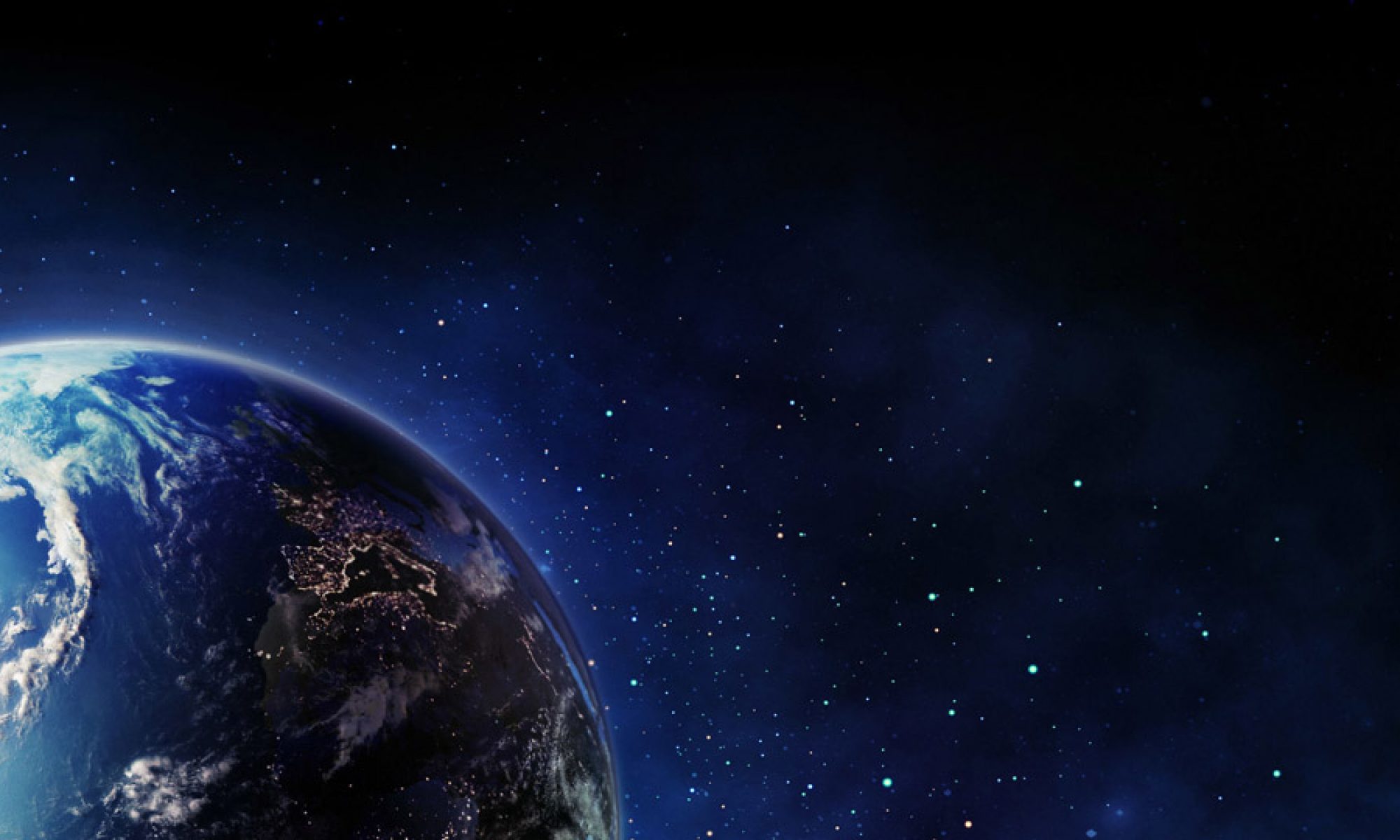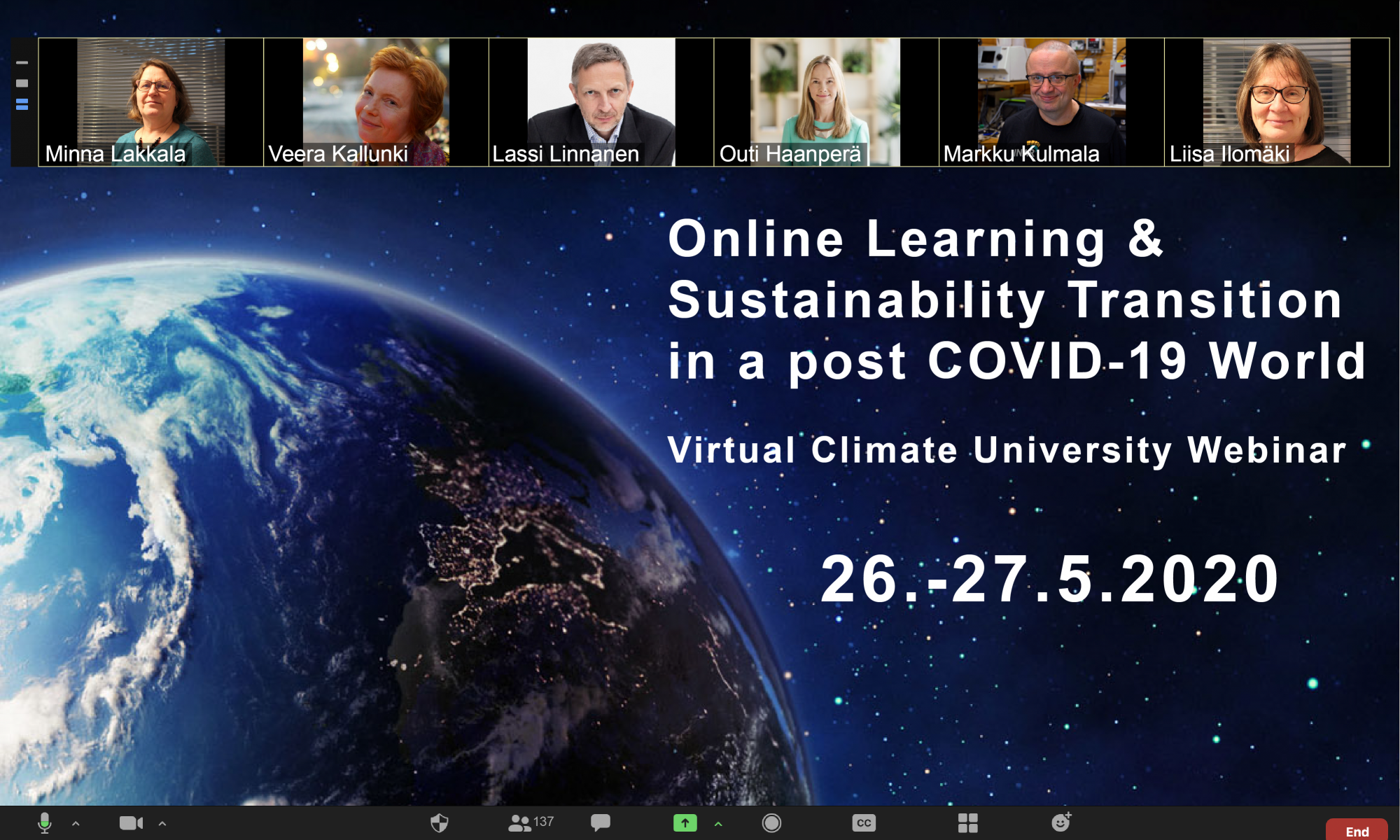We held our first CU webinar a few weeks ago on Tuesday and Wednesday 26.-27.5. It was a success! Here’s a recap of our first Virtual Climate University.
The webinar started with a simple instruction. We put a link to our Digicampus platform, where all of the information and content of the webinar was gathered, which lead to a Flinga wall. The instruction was this: “Go the Flinga, create an avatar and type your name, organisation and inner super hero of today.” The Flinga wall was a map of the world so we then instructed everyone to place their avatar wherever they felt like their superhero was from. Here you can see the result. 🙂
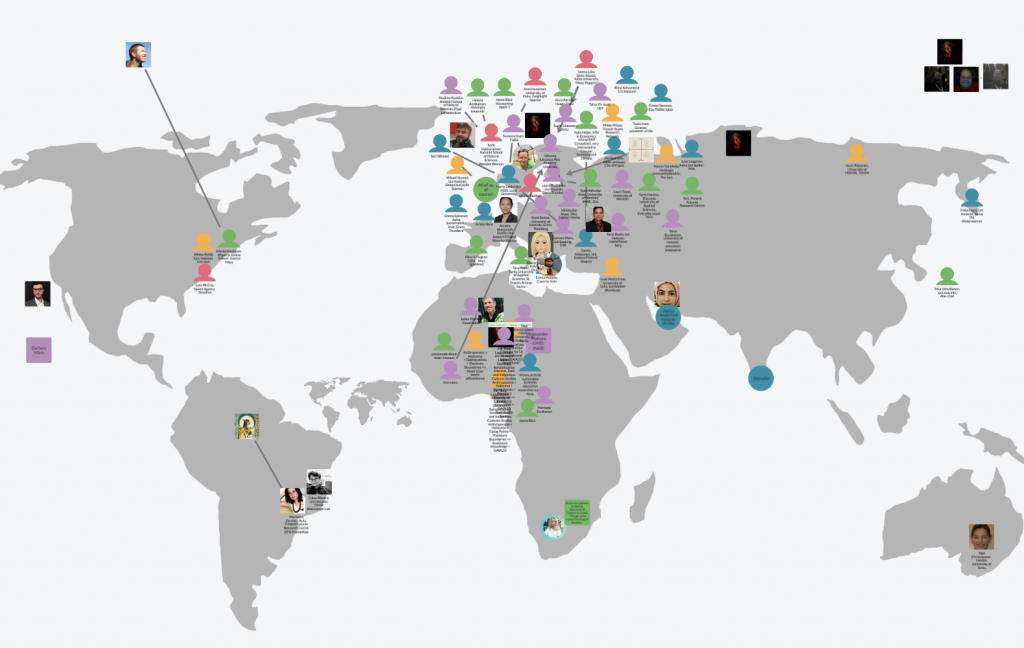
After the superheroes we continued to the official opening words of the webinar, which were given by academic Markku Kulmala. Then Laura Riuttanen introduced Climate University and Katja Lauri the ABS network. The warmups were done. It was time to start our first workshop.
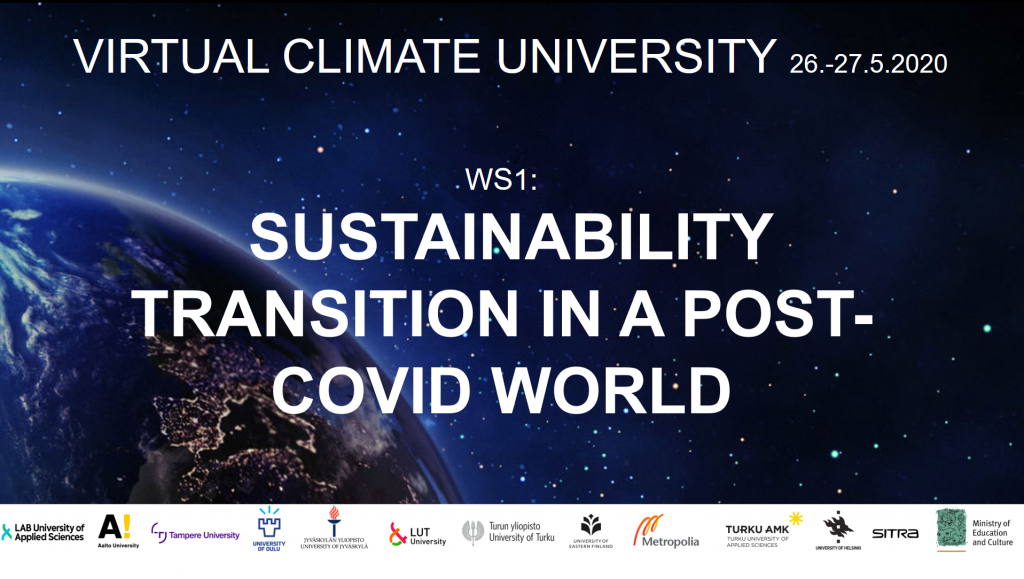
The first workshop started with our two keynote speakers Outi Haanperä from Sitra and Lassi Linnanen from LUT-university. Outi focused on the economical side of the possible sustainability transition and Lassi on much needed system-level change. After these amazing keynote speeches there was a workshop hosted by Anna Kirveennummi and Morgan Shaw from Finland Futures Research Centre, University of Turku. The workshop was focused on the question “How can we learn about sustainability from the disruptions caused by the COVID-19 pandemic?”, and it featured a poll at the start. The results were then discussed at the end.
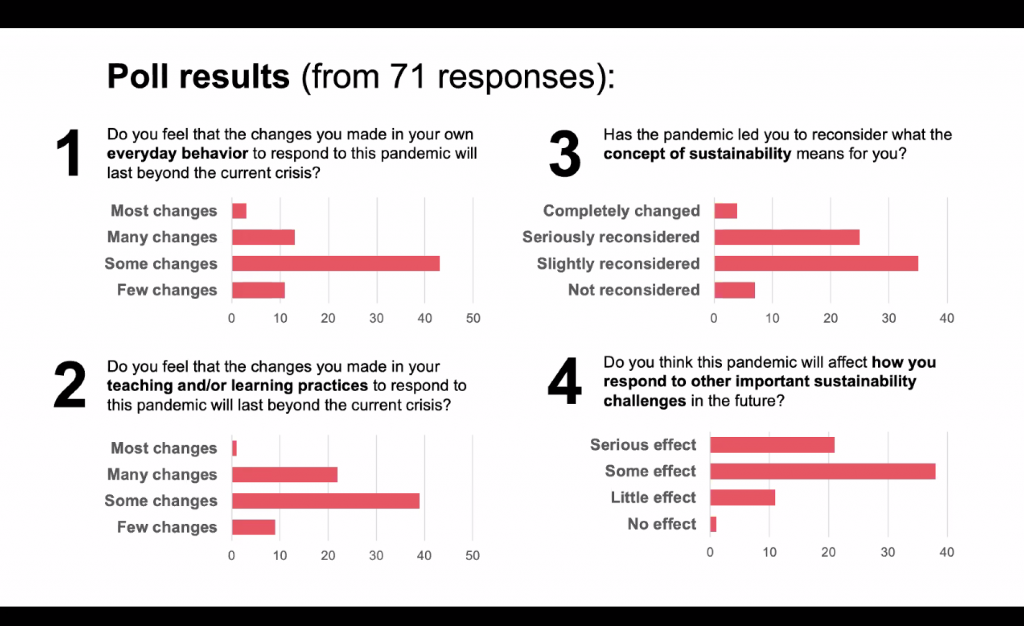
We then ended the first workshop with a little meditation hosted by our “guru” Laura. ?
During this corona virus episode we have realized that sitting in a Zoom meeting 6-8 hours in a row is surprisingly exhausting. Thus we wanted to assure that the breaks are long enough for both the participants and for us hosts. We had a one hour break after the first workshop and a 45min break between the 2nd and 3rd workshop.
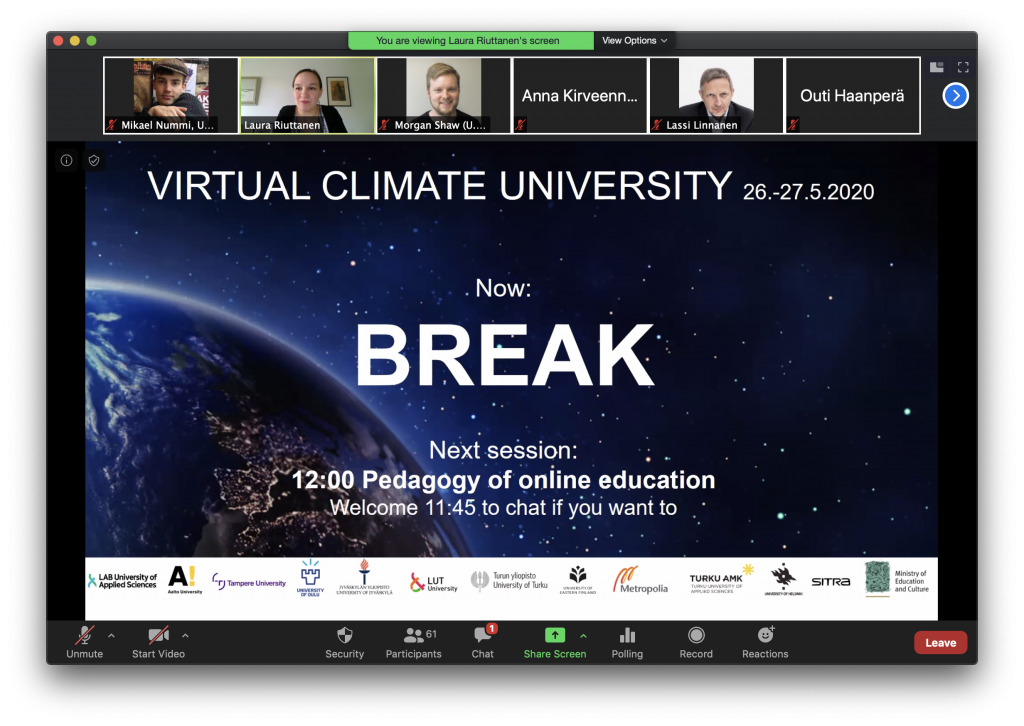
The second workshop started with the introduction of our CU courses. Then Liisa Ilomäki and Minna Lakkala from the University of Helsinki shared their views on the pedagogy of online education. Next Sari Puustinen from the University of Turku introduced our new bachelors level course “Sustainable.now”, which covers basics of sustainability .
We had the 45 min break and it was time for the last workshop of the day. Santtu Mikkonen from University of Eastern Finland gave an interesting insight to our course about statistical tools titled “Statistical tools for climate and atmospheric science”. Laura wrapped up the formal part of the day with a little poll and reminded everyone of our evening activities, which were soon to begin. But first we headed to a well deserved 2-hour-break.
As the clock hit 18:00 we started our evening activities, which were:
The Kitchen: Cooking vegan food together
The Dining Hall: Informal discussions on the workshop topics
The Pub: Tasting some beer and making the world a better place
I was in charge of planning the recipe for the kitchen. I was also actually cooking the asparagus-lemon-risotto (delicious by the way, I’ll add the recipe to the end of this blog post), so kind of I got to live my childhood dream of being a TV chef. ?
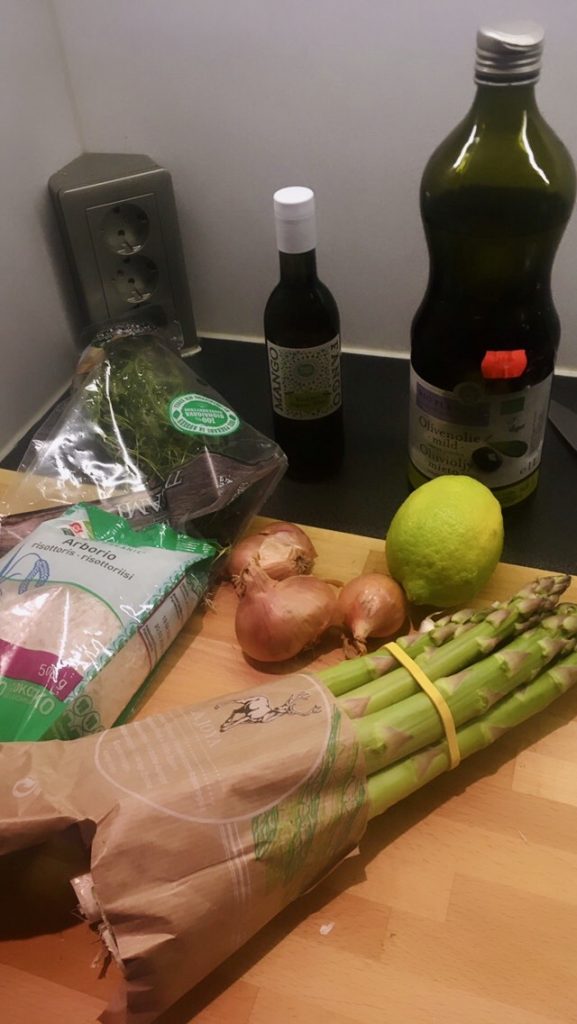
Eventually only one person cooked the food with me, but it was still super nice. The people from the Pub moved to our Kitchen Zoom room after about a half an hour (as everyone knows the best place to hang around in a house party is always the kitchen ?). We learned interesting details about bout alcoholic and non-alcoholic beers and I got to eat my self-made risotto, which caused some understandable envy among the people, who first watched me cook for 2 hours and at the end I was the only one enjoying the meal. Although we didn’t have too many participants in the evening activities, we all enjoyed the time we spent with each other. At around 21:00 we closed our Zooms, 12 hours after the superhero introductions. It was time to rest.
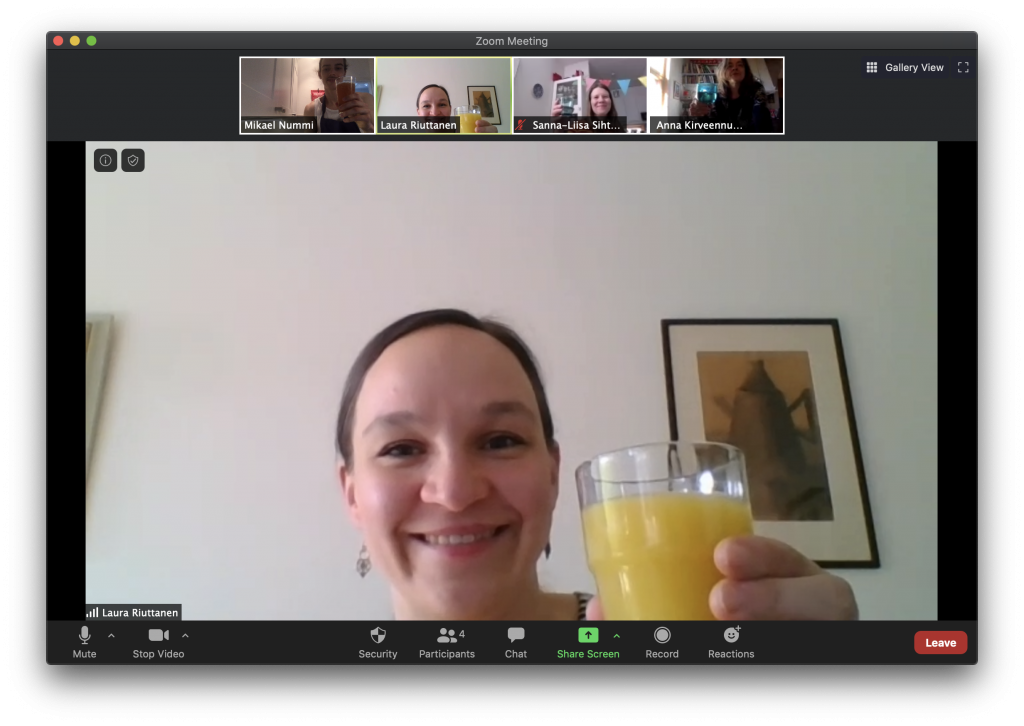
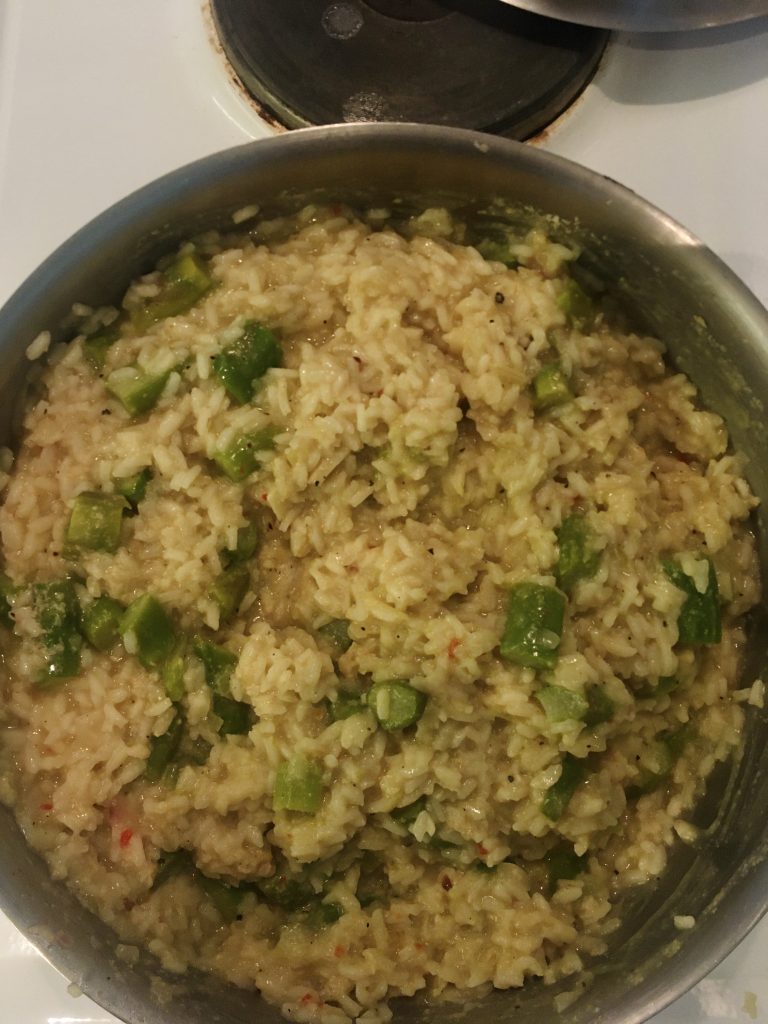
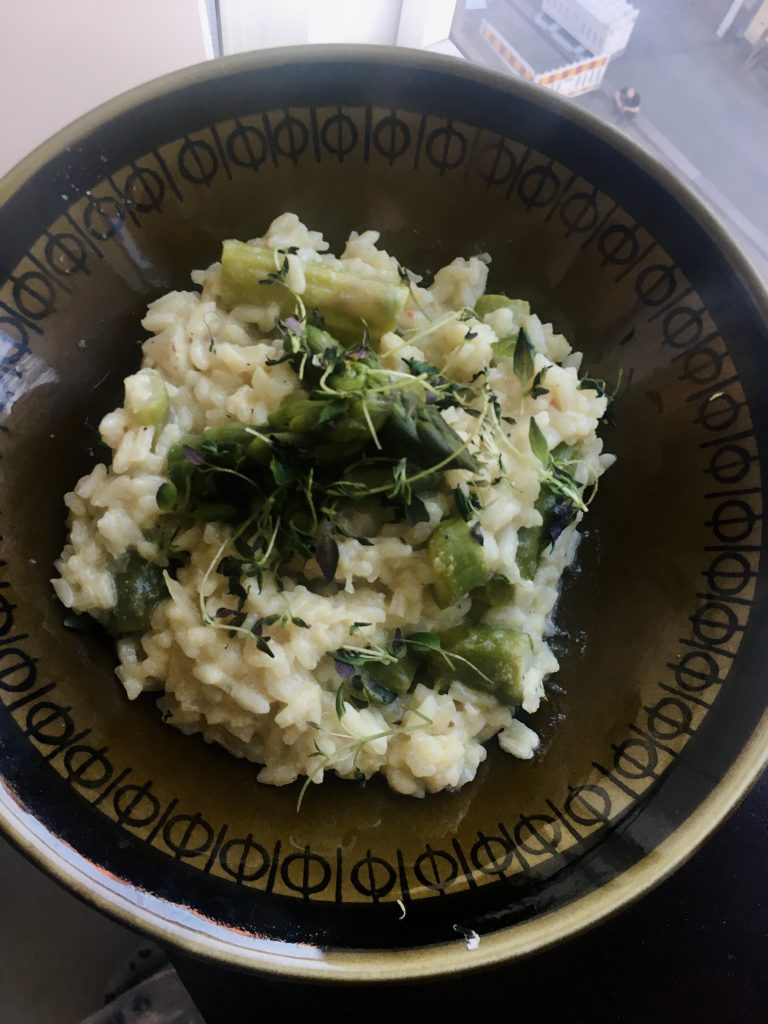
The next morning started with a fascinating workshop about the pilot of the upper secondary school version of Climate.now. In the beginning I quickly introduced our Climate Challenge campaign. We also showed a never-before-seen challenge video, where the upper secondary school students form Tampere, who had just completed the pilot, challenged every Finnish school to:
- Arrange more teaching about climate change, such as the Climate.now course
- To invest more into the serving of delicious vegetarian food
- To invest to the recycling possibilities in schools
After the challenges we offered the students a chance to ask anything they wanted form climate scientist. We had 4 specialists answering all of the great questions. Before the end of the workshop we heard feedback from the teachers and coordinators of the pilot courses, which were arranged in different upper secondary schools around Finland during this spring.
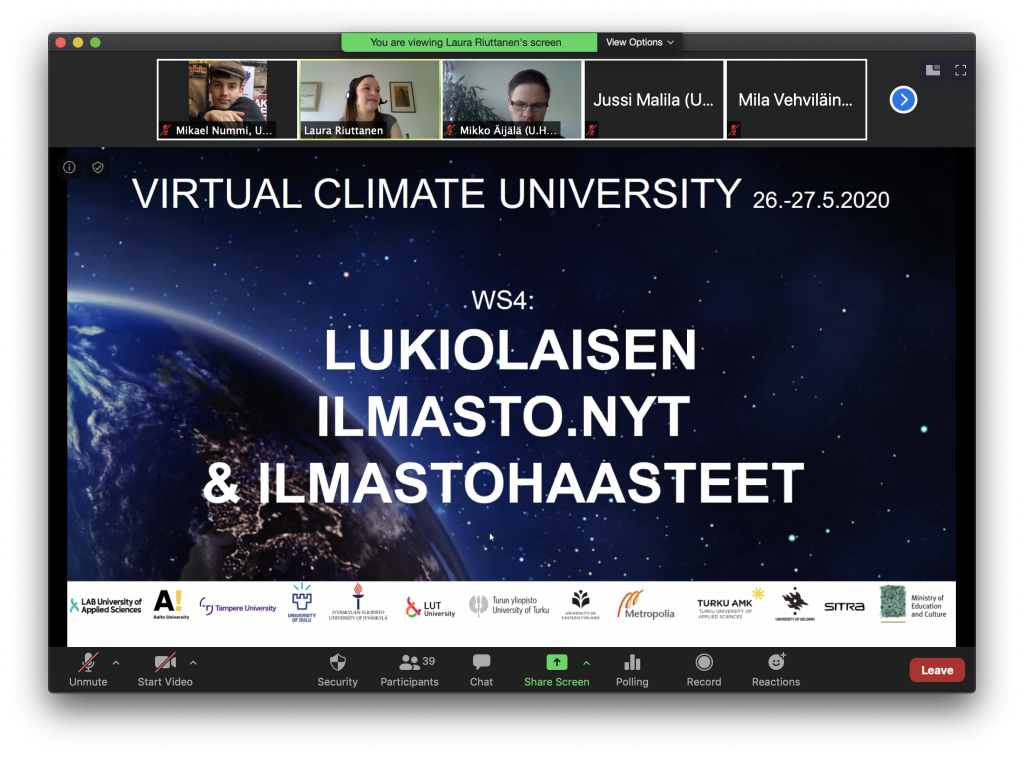
After another refreshing 1-hour-break it was time for workshop number 5. Mira Hulkkonen from the University of Oulu introduced one of our new courses “ClimateComms.now”, which she has created. The course goes into the history and state of climate communications and also gives tools for constructive alternatives. Participants interacted during the workshop via Flinga and Mira told us that she got a lot of useful new opinions about the course. It was also Mira’s birthday so we all signed a virtual birthday card to her. In my opinion this was the best workshop of the entire webinar. Thank you Mira for that!
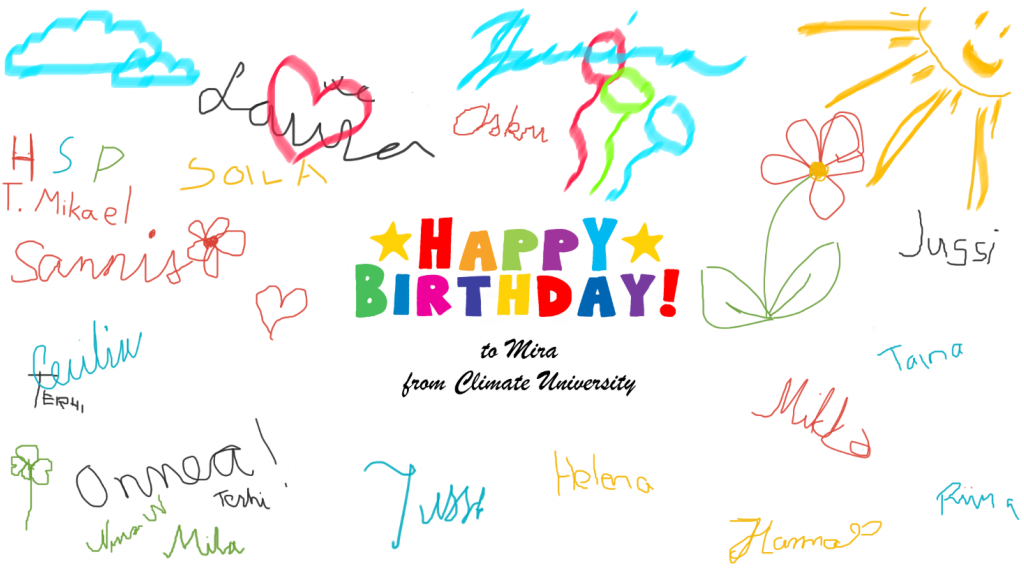
The last workshop started in the afternoon after a break. Veera Kallunki gave us a glimpse of the best practices of Moodle and finished the series of six interesting and eye-opening workshops.
Around 16:00 on Wednesday it was time for the final words. We had again a Zoom poll. At this point we, the hosts, were all pretty worn out, but still really happy about the webinar. We thanked everyone who participated and left the Zoom meeting. In total there was over 150 participants from 7 different countries!
I think it’s now officially safe to say that arranging a big webinar won’t be an issue for any of us hosts anymore. It was a challenging task and at certain points nobody was sure what’s going to happen. Thank you everyone who participated either as a listener, as a speaker or as just a regular super hero! We all have learned so much about new ways of working during these corona restrictions, which has been somewhat fascinating. However let’s hope that we can all meet in person at Kuopio and Tampere next autumn. Once again thank you!
One of your hosts,
Mikael Nummi
Civil servant at INAR, University of Helsinki
Ps. Here’s the recipe for the risotto. Enjoy!
